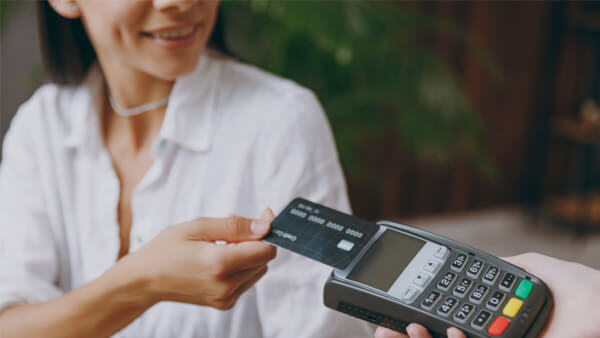Pty Ltd: What It means for Australian businesses
Learn what does PTY LTD mean in Australia and how it compares to other business structures. What are theequirements to start a PTY LTD in AU? Find out more!

Whether you have your own business already, or are looking to start one, there might be a time where you may need to seek out overseas suppliers to fulfil your business needs or services.
In fact, in the 2020 to 2021 financial year, the number of Australian business importers increased by 23% from the previous year, making the value for overseas imports around $309 billion dollars.¹ Here’s what you need to know for how to make payments to suppliers overseas from Australia.
| 💸 Looking for a stress-free international business account to pay and receive money from abroad like a local? With multiple cards, AUD and foreign currency account details? |
|---|
Discover the Wise
Business account
To pay an Australian supplier, the ease is in the familiarity. From handing over cash, to making a bank transfer using Bpay, PayID or their Australian BSB and account number, these methods are all too common to Australian consumers.
When it comes to paying suppliers overseas, you’ll likely be faced with an invoice or call for payment with unfamiliar bank codes, instructions and different currencies.
It doesn’t have to be a challenge though, even when it is the first time you are going to pay your overseas supplier. Here are some ways to pay suppliers abroad from your Australian business.
We’ll dig a little deeper into each option, and the key things you need to know about them.
Dealing with multiple foreign currencies can be a hassle, especially if you are being charged extra fees on top of your order. The Wise Business account comes with several features that can help alleviate some of the common stressors that come with paying overseas suppliers. With the one account, you’ll get account details including:
This means you’ll be able to send and receive all supplier payments as if you were doing business locally in each of these countries. Outside of these accounts, you’ll access the real exchange rate when sending money to 140+ countries, with only a transparent fee that you’ll know up-front when setting up each transfer.
Outside of the Wise Business Account, here are five more ways you can pay overseas suppliers.
Using a credit card to pay an overseas supplier is possible and many businesses do utilise this method for smaller payments, especially bills payable online. Depending on your credit card provider, there may be fees incurred including international transaction fees, currency exchange conversion fees or margins and interest for late payments. This can get costly on large payments or frequent orders.
One of the most common methods to pay suppliers overseas is by using bank to bank transfers. Generally, if you have a business account with any of the big 4 banks like NAB² , Commonwealth Bank³, ANZ⁴ or Westpac⁵, you’ll be able to use their international money transfer (IMT) facility. You should watch out for extra fees that are incorporated into bank to bank transfers including intermediary bank fees from using the SWIFT network³, foreign transaction fees or margins included in their own foreign exchange rate.
PayPal is a well-known multinational company that allows people to send and receive money through their service. PayPal may be a preferred method for your overseas supplier as PayPal is in many parts of the world. Depending on where your supplier is and what currency you need to pay for your goods can incur different fees on the PayPal platform.⁶
Outside of the big banks and PayPal, you’ll also find other international money providers that specialise in moving money overseas for businesses. Some companies include:
Depending on which company you choose can vary the fees, currencies available and countries where you easily pay suppliers outside Australia.
Before you lock in your money transfer to an overseas supplier, there are a few important things to keep in mind.
Importing goods into Australia requires a bit of research and preparation, especially for businesses seeking out a new supplier abroad.
There are goods that don’t require a formal import declaration including ⁷:
This changes if you are looking at more complex imports that ⁷:
It's important to check what your requirements to the Australian government are before paying any supplier abroad for an order. Delays or issues with releasing your items at the border can impact how your business runs.
Knowing who and where you are sending your money to is crucial when dealing with overseas suppliers. You can do this by checking for the company registration through a local registry, using verified databases that list suppliers, research online reviews and if possible, and request any certifications for goods before they are ordered.
You may think that there aren't any protections when dealing with overseas suppliers. Although protections vary across countries, keeping everything above board with clear cut supply agreements can put rules in place that can support any issues endured down the track.
When setting up a supply agreement, terms between your business and the supplier should be clear and include items like clear descriptions of items, clear guidelines on payment methods, pricing terms, shipping or delivery speed, warranties and any liability notices.
As mentioned above, many payment methods can come with extra fees including margins on exchange rates, foreign transaction fees and general processing fees. To save yourself from paying more for your incoming goods, choosing a reputable provider that is upfront with their fees can help save your business heaps in the long run.
Depending on what you import, you may also incur fees associated with bringing those goods in. Fees are from any logistics, storage, custom duties, clearance permits, or other import related fees that are based on your order.⁷
That leads us into the last key thing to keep in mind. Just because goods are imported from abroad does not mean they are exempt from goods and service taxes (GST) here in Australia. According to Australian tax law, It is up to the Australian business owner to determine whether the goods they are importing for commercial purposes is subject to GST. Doing your own research or seeing professional guidance for your obligations can help clear up any confusion before you send your money abroad.⁸
When money is involved, new and improved scams are just around the corner. You can keep you and your business safe by:
Even when you have built a solid relationship with a supplier, scams and opportunistic criminals are always on the lookout for ways to infiltrate high worth money movements. Using your own due diligence to stay a step ahead can make sure all your supplier payments go through without a hitch.
| 💼 Case Study: Learn how digital music distribution and artist services company GYROstream uses Wise to pay out royalties globally with transparent, low costs |
|---|
Streamlined and hassle-free, the Wise Business Account with linked debit card delivers an all-in-one solution for businesses.
At home or abroad, you can shop online or in-store via the Mastercard network and make easy ATM withdrawals using the Wise business debit card. With no monthly fees, hefty rates or hidden charges, Wise makes it easier to spend, send and receive funds.
Manage your money via your local Australian account while also benefiting from access to accounts in over 9 major currencies.
Access additional cards for your team as needed and pay a single fixed card-creation fee per card with no monthly fees applied.
Able to integrate with most major APIs, the Wise Business Account also facilitates better cash flow management and consistent, reliable reporting across all additional cards.
Find out more about how the Wise Business Account can save you time and money.
Register your Wise business
Account in minutes
Please see Terms of Use for your region or visit Wise Fees & Pricing for the most up to date pricing and fee information.
Sources:
Sources checked on: 26 February 2026
*Please see terms of use and product availability for your region or visit Wise fees and pricing for the most up to date pricing and fee information.
This publication is provided for general information purposes and does not constitute legal, tax or other professional advice from Wise Payments Limited or its subsidiaries and its affiliates, and it is not intended as a substitute for obtaining advice from a financial advisor or any other professional.
We make no representations, warranties or guarantees, whether expressed or implied, that the content in the publication is accurate, complete or up to date.

Learn what does PTY LTD mean in Australia and how it compares to other business structures. What are theequirements to start a PTY LTD in AU? Find out more!

If you’re on the hunt for a suitable business credit card in Australia, there are several offerings available. A mutual or ‘customer-owned’ bank, Heritage...

If you’re a business owner in Victoria seeking a low-rate business credit card solution, Bank of Melbourne (BOM) may be worth considering. Existing...

If you run a business that deals with international trade, you know the importance of finding a service provider that makes international payments and foreign...

If you’re the owner of a business or run the finances of one, you might be considering business debit cards. These cards are usually connected to the...

Wondering how PayPal Braintree payments works for accepting card payments, and what the fees and charges are? We got you covered in this article.